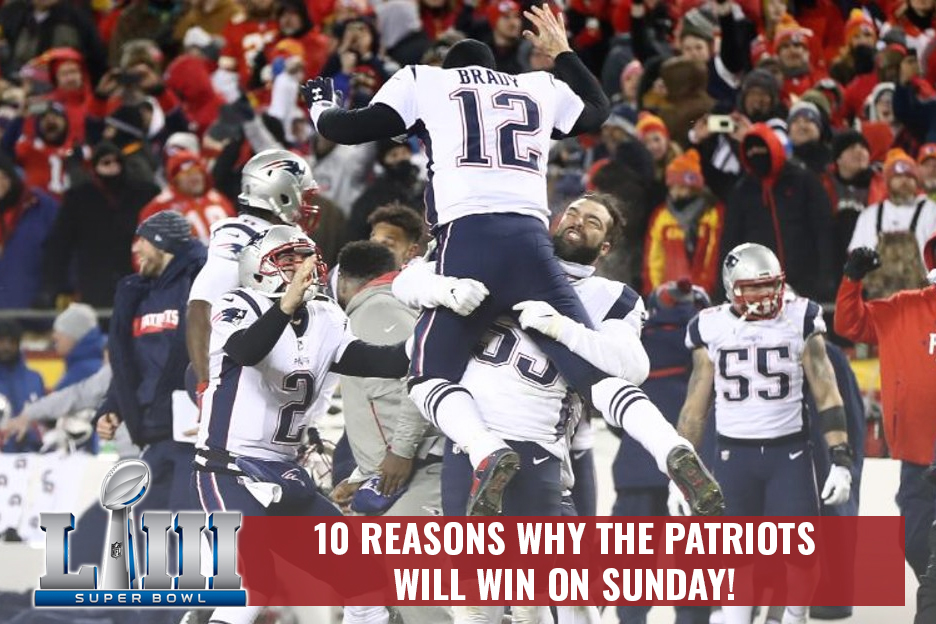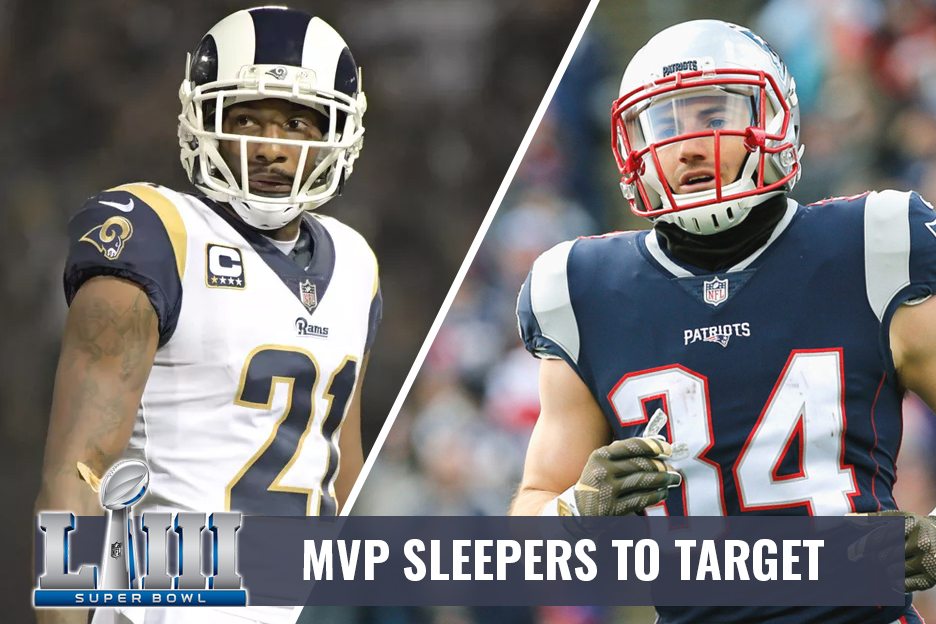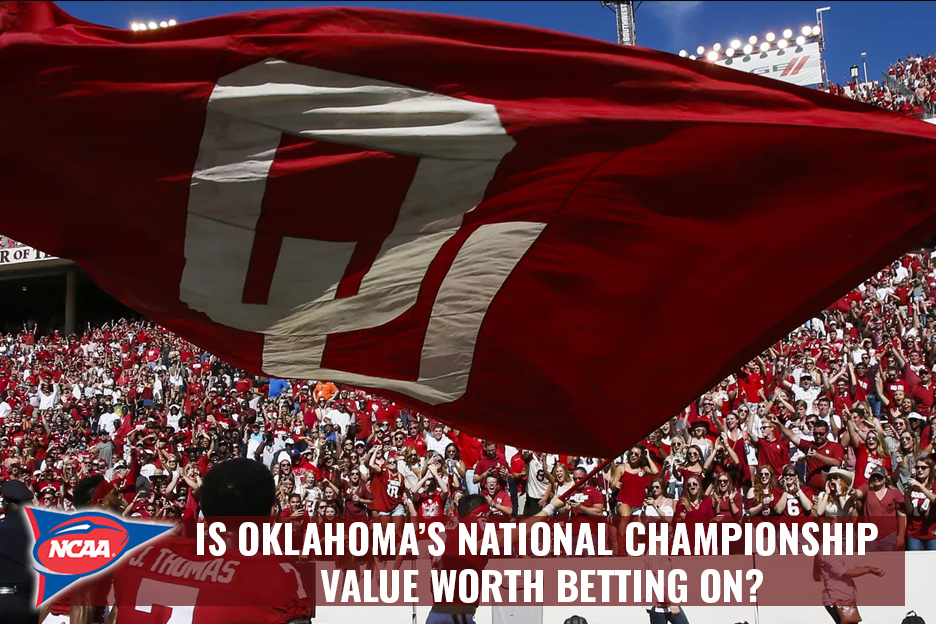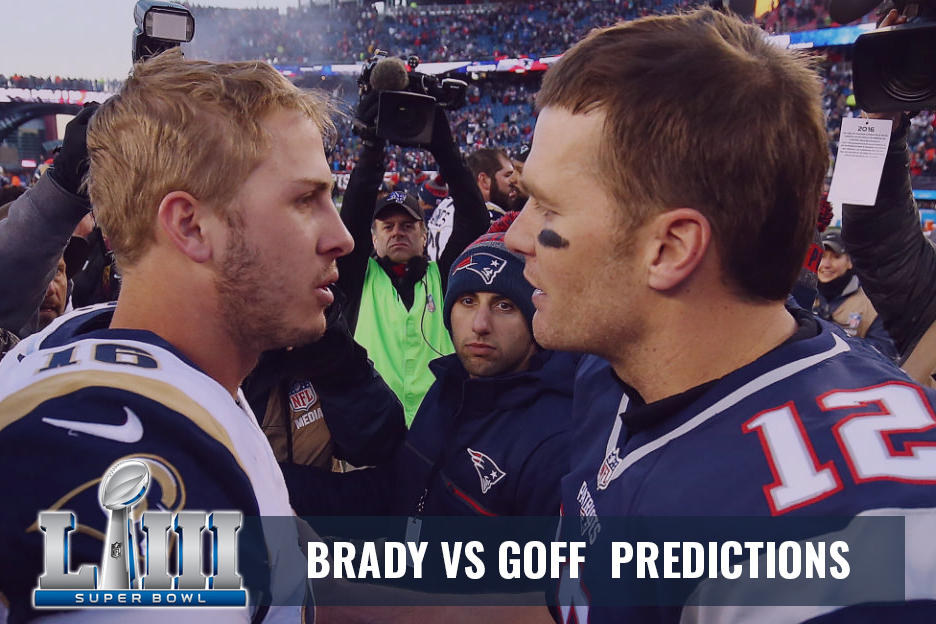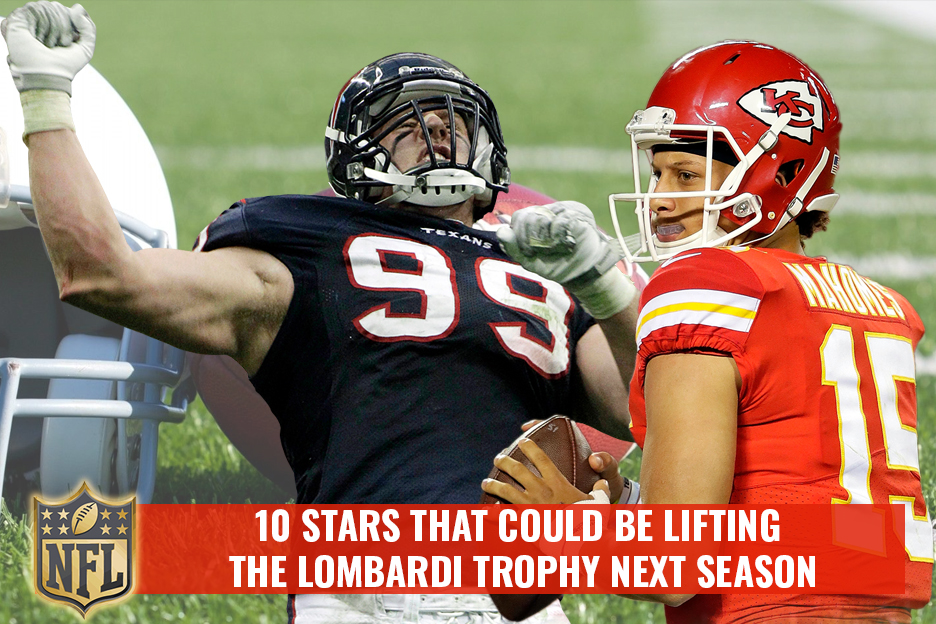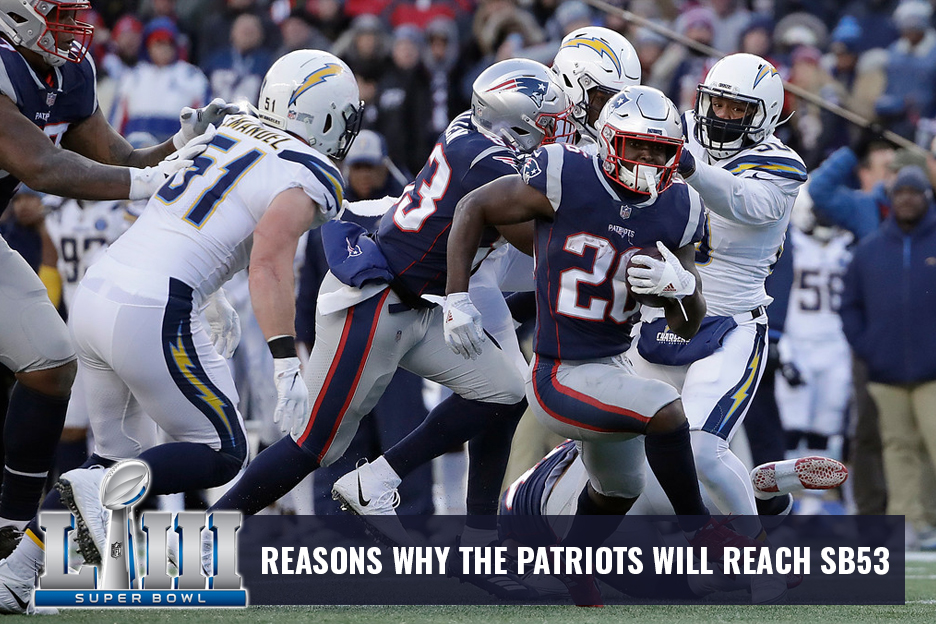

Posted in: NFL
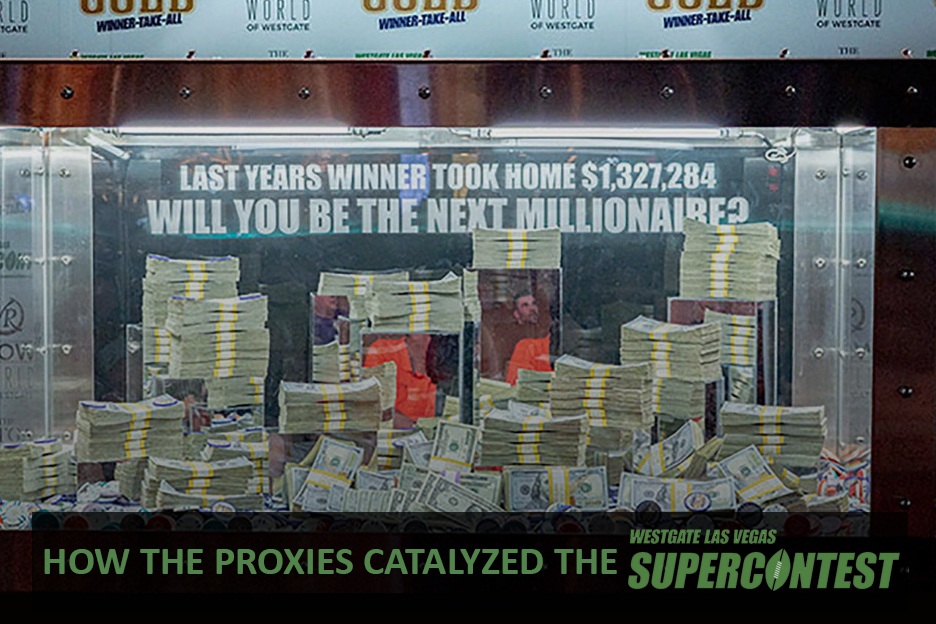
As a younger man, I often passed the time reading the old “Sports Guy” columns published to ESPN.com by Bill Simmons.
And about 15 years ago, I became fascinated with Simmons’ detailed recounting of his experiences in what he deemed to be the “most prestigious football handicapping contest in the world.”
At the time, Simmons was writing about the Las Vegas Hilton SuperContest, which was hosted by the former LV Hilton casino and its affiliated SuperBook sportsbook. The Hilton has since been renovated and rebranded as the Westgate Las Vegas Resort and Casino, but thankfully, the SuperContest survived the corporate shuffling.
Back when I first heard about the SuperContest from Simmons’ entertaining columns, I was blown away by the entire concept.
Since 1988, players have ponied up $1,500 to enter. From there, the task is deceptively simple – pick five National Football League (NFL) game against the spread (ATS) each week and nail as many covers as you can. A cover is worth one point, a failure to cover is worth zero points, and a point spread push brings back 0.5 points.
While I do consider myself a professional gambler by trade, my bread and butter have always been blackjack and video poker, with the occasional poker tournament thrown in for good measure. I always enjoyed strolling through the sportsbook, even placing a few wagers on my hometown teams for a sweat, but I’m by no means a “sharp” bettor who makes a living by beating the books.
For that reason, reading Simmons’ weekly rundowns of his SuperContest picks – and more importantly, the handicapping process that went into each selection – turned me on to a new passion. Each week’s slate of NFL action offered between 14 and 16 games to choose from (accounting for bye weeks), and with only five teams to “card” each week, sorting through the 32-team league to find winners on a consistent basis seemed to be a Herculean display of handicapping skill.
Throw in the SuperContest’s unique system of assigning point spread lines on Wednesday of each week – before injury reports are finalized to create more accurate closing lines – and I viewed this game as the perfect blend of long-term skill and short-term luck.
Fast forward a few years later, and I finally decided to take the plunge for myself – but I faced a certain dilemma that likely plagued other would-be SuperContest entrants all over the country.
Due to strict Nevada Gaming Control Board (NGCB) regulations, the Westgate SuperBook can only accept selections in person at their onsite betting windows. The windows themselves have since been supplemented with automated betting kiosks, but SuperContest cards must still be filled out and turned in on the sportsbook floor.
I used to live in Sin City full-time, but family demands and other issues have forced me to relocate to Arizona. With that in mind, I figured my chances of entering the SuperContest were slim to none – until I discovered the once secretive world of proxy services.
Simply put, the Westgate SuperBook knows full well that the fabled “wise guys” – or the professional sports bettors who place the largest wagers day in and day out – don’t always live in Las Vegas. These wise guys can hail from New York City or Miami, maybe California or Chicago, but they’re spread around the country for the most part.
To accommodate these players, the NCGB included a carveout in its regulations which allowed players to submit their picks via proxy. In other words, as long as you have a trusted source on hand at the SuperBook before the submission deadline, you can play the SuperContest from anywhere in the country. Luckily for me, I had a few longtime pals still based in Vegas – including one who would be at the SuperBook every Sunday playing for himself – so I set up a deal with one of them to act as my proxy.
For a couple hundred bucks, and a small percentage of any eventual winnings I might enjoy, this pal happily placed my picks as a faithful proxy. And while neither of made the top-50 money cut that year, the proxy arrangement persists to this day.
My first year competing against the wise guys came in 2008, and at that time, the field was limited mostly to hardcore handicappers who knew their stuff. The 2008 edition of the SuperContest attracted 350 entries, which was actually far off the previous pace, which saw 505 entries in 2005.
My inaugural run in 2008 was also the first year of historic back-to-back victories for a professional handicapper known as “Fezzik” within the SuperContest standings.
The world would later come to know Steve Fezzik as one of the greatest football handicappers of his generation, but at the time, he was just the dragon up top I needed to slay. When he won the whole shebang again in 2009, however, it appeared as though the SuperContest was an exclusive domain dominated by pros.
Indeed, the field dropped to 328 entries in Fezzik’s second winning year, before rebounding slightly to 345 by 2010.
But as you can see in the table below, which details the SuperContest’s growth since 2004 – the first year such data was recorded – things took a decided turn for the better after that:
*Split three ways
| Year | Entries | 1st Place Prize |
|---|---|---|
| 2004 | 411 | $394,560* |
| 2005 | 505 | $303,000 |
| 2006 | 416 | $249,600 |
| 2007 | 342 | $205,200 |
| 2008 | 350 | $210,000 |
| Year | Entries | 1st Place Prize |
|---|---|---|
| 2009 | 328 | $196,800 |
| 2010 | 345 | $207,000 |
| 2011 | 517 | $310,200 |
| 2012 | 745 | $447,000 |
| 2013 | 1,034 | $542,850 |
| Year | Entries | 1st Place Prize |
|---|---|---|
| 2014 | 1,403 | $736,575 |
| 2015 | 1,727 | $906,675 |
| 2016 | 1,854 | $905,482 |
| 2017 | 2,748 | $1,300,000 |
| 2018 | 3,123 | $1,422,000 |
In a phenomenon reminiscent of the famed “Poker Boom” – sparked in 2003 when amateur Chris Moneymaker won the World Series of Poker (WSOP) Main Event – the SuperContest has grown by leaps and bounds since 2010.
The field grew from 345 to 517 entries in 2011, good for a growth rate of just under 50 percent. Two years later the field topped 1,000 entries for the first time, with the 1,034-player turnout representing yet another massive leap.
The SuperContest has grown every year since, and this year, players are competing against a field of 3,123 – or nearly 10x the field Fezzik battled through just 10 years prior. And to put that growth in perspective, just think that this year’s champion will pocket $1.4 million – or more than $1 million on top of Fezzik’s back-to-back payouts combined.
Even better, thanks to this incredible increase in entries from year to year, the SuperContest expanded its payouts from the top-50 to the top-100 for 2018 and beyond.
So, the question remains, what has fueled this explosiveSuperContest Boom?
Well, as it turns out, the ability to use proxy services – coupled with the rapid advancement of online technology – has revolutionized the SuperContest in recent years.
When the Las Vegas Review-Journal asked Jay Kornegay – the longtime vice president of sportsbook operations at the Westgate SuperBook – to explain the SuperContest’s incredible growth since 2010, he doesn’t hesitate to thank the rise of online proxy services:
The first major proxy service to take advantage of the internet is FootballContest.com, a joint operation ran by partners Matty Simo and Toni Law.
Las Vegas residents, Simo and Law found themselves helping out a few friends 10 years ago, offering to submit their SuperContest selections for a small fee. After brainstorming ways to expand the fledgling business, the pair set up a website and began advertising on social media. For a flat fee of $300, their proxy service will transfer your emailed picks to the SuperBook betting window for official entry – week in and week out.
As Simo explained, neither himself nor Law enter the SuperContest for themselves, removing any possible conflicts of interest while allowing the service to focus solely on customers:
Simo and Law run a tight ship, but over the years, they’ve managed to beat the odds by proxying for a few SuperContest champions. In 2013, it was David Frohardt-Lane who used their proxy service to pick the most winners, while “Rounding Again” turned the trick two years later.
By 2016, players using FootballProxy.com represented 40 percent of the field, as the company’s growth has mirrored that of the SuperContest itself.
In an interview with CBS Sportsline conducted ahead of this year’s contest, Simo revealed that FootballProxy.com has crossed the four-figure player plateau for two straight seasons:
Simo also explained just how much hard work is involved in proxying for 1,000+ people at a time:
While their proxy service is undoubtedly the market leader, Simo and Law have seen the cottage industry they helped to create become a different beast altogether.
Today you’ll find a whole host of competitors out there offering similar services, including Kelly Stewart’s Proxy.KellyInVegas.com, ProxyBet.com, VegasFootballProxy.com, and dozens of others.
Kornegay and his staff at the SuperBook have helped a great deal by allowing proxy services in the first place.
Per his account to ESPN Chalk, Kornegay recognizes the importance of luring handicappers in from faraway locales, and he thanks a combination of social media and proxies for doing so in such tremendous numbers of late:
When Kornegay first joined the Westgate SuperBook team in 2004, he found that roughly 30 percent of the 411 entries – or right around 125 entries – were placed through proxies. But by the time 2015 rolled around, Kornegay realized that more than half of the 1,727 entries in that year’s field were playing through a proxy.
Thanks to that willingness to think outside of the box, players from as far away as Italy and Dubai can take part in the fun. Kornegay has witnessed the SuperContest’s astronomical growth firsthand, and as told CBS Sportsline, automated kiosks located within the SuperBookformed a precursor to online proxies:
Kornegay is also keen on the idea of opening up the SuperContest entry process to the entire internet, via a website / mobile app suite that connects directly to the SuperBook:
Offering a way to enter your own picks from New Jersey or Newfoundland may be viewed as a threat to the proxies, but if and when apps become the main mode of entry, Kornegay can expect the field to continue its current pace of growth.
Given the recent U.S. Supreme Court ruling that repealed a federal ban on sports betting – the 1992 law known as the Professional and Amateur Sports Protection Act (PASPA) – individual states are now free to set their own laws over the industry. Since the landmark decision was handed down in May, four states have legalized and launched sports betting – Delaware, New Jersey, Mississippi, and West Virginia – while several others have laws on the books that are awaiting implementation.
This wave of sportsbook legalization has created markets for millions of new sports bettors – recreational players who may have wanted to wager before, but didn’t like the idea of dealing with underground bookies or offshore sportsbooks. And with online sportsbooks now a mainstream option in the states mentioned above, Kornegay and the SuperBook could potentially have thousands of additional handicappers waiting to jump aboard.
Kenny White – a sports betting analyst for CBS Sportsline and a longtime SuperContest regular -has been excelling at football handicapping contest since the old days.
He was the champion of the now defunct Stardust Invitational 1995 and 1996, before capturing the Barley’s Pro Football Handicapping Contest crown in 1997.
According to White, who contributed to an interview with CBS Sportsline, the SuperContest Boom has been a long time coming:
White believes the advent of proxies has indeed accelerated the SuperContest’s growth, but he also attributes the increased popularity to the amateur factor.
Much like Moneymaker inspired a new generation of poker players to take their shot at WSOP glory, a few recent success stories in the SuperContest are drawing increased attention from the general public.
In 2016, a Las Vegas barista by the name of Damon Graham worked at Starbucks by day, while studied his SuperContest lines on the side. Graham had two entries (the maximum allowed) in that year’s SuperContest, but it was his “pops2008” card that topped the 1,854-player field with a 54-28-3 record. That 65.8 percent winning clip, assisted by a torrid 13-2 run in the last three weeks, was enough to push Graham and “pops2008” into the winner’s circle for a $895,482 payday.
Combined with his $10,000 score for winning the final three weeks, and Graham earned more than $900,000 – while also providing the template for amateur players everywhere.
En route to the win, Graham had to overcome Mark Jorstad, a 61-year-old farmer who lived and worked in Illinois throughout the NFL season. Playing through a proxy, Jorstad’s “Orange Crush” entry wound up finishing in second place for a $358,193 payday.
Jorstad made waves when he revealed a curious fact about his winning season. While his opponents were avidly watching an entire Sunday’s worth of gambling on the gridiron, the farmer was busy tending to his crops ahead of the fall harvest. It wasn’t until Thanksgiving that Jorstad finally found time to catch his first NFL game of the year on TV.
It goes without saying that a player like Jorstad would’ve never even imagined entering the SuperContest without a proxy. His runner-up run provides proof of concept of the proxy industry’s importance when it comes to leveling the proverbial playing field.
Asked about the outstanding performances put in by himself and Graham – two non-professional players, including one who relied on a proxy – Jorstad told ESPN.com that he hoped to see the 2016 outlier attract more recreational bettors to the SuperContest:
Technological advancements have upended the gambling industry on all fronts – and not all of these changes have been welcome if I’m being honest – but the intrepid proxy services fueling the SuperContest Boom certainly are. This is that old-fashioned American entrepreneurial spirit working its wonders, as a handful of innovators like Simo and Law have managed to get their piece of Las Vegas’ massive football handicapping contest pie.
I’ve been a loyal SuperContest entrant for a decade and counting now, and I encourage anybody interested in taking their shot at more than a million bucks to explore proxy services. You’ll find pros and cons for all of the operators out there, so take your time to research customer reviews, price points, and other important factors.
After all, the 2019 NFL season will be here before you know it, and when the SuperContest is concerned, the more the merrier.
